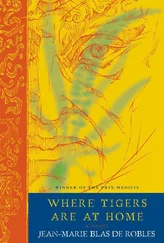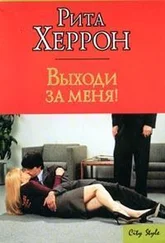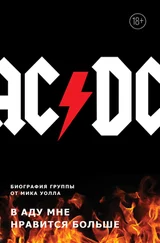Мик Херрон - Real Tigers
Здесь есть возможность читать онлайн «Мик Херрон - Real Tigers» весь текст электронной книги совершенно бесплатно (целиком полную версию без сокращений). В некоторых случаях можно слушать аудио, скачать через торрент в формате fb2 и присутствует краткое содержание. Год выпуска: 2015, Издательство: Soho Press, Жанр: Старинная литература, на английском языке. Описание произведения, (предисловие) а так же отзывы посетителей доступны на портале библиотеки ЛибКат.
- Название:Real Tigers
- Автор:
- Издательство:Soho Press
- Жанр:
- Год:2015
- ISBN:нет данных
- Рейтинг книги:4.5 / 5. Голосов: 2
-
Избранное:Добавить в избранное
- Отзывы:
-
Ваша оценка:
- 100
- 1
- 2
- 3
- 4
- 5
Real Tigers: краткое содержание, описание и аннотация
Предлагаем к чтению аннотацию, описание, краткое содержание или предисловие (зависит от того, что написал сам автор книги «Real Tigers»). Если вы не нашли необходимую информацию о книге — напишите в комментариях, мы постараемся отыскать её.
Real Tigers — читать онлайн бесплатно полную книгу (весь текст) целиком
Ниже представлен текст книги, разбитый по страницам. Система сохранения места последней прочитанной страницы, позволяет с удобством читать онлайн бесплатно книгу «Real Tigers», без необходимости каждый раз заново искать на чём Вы остановились. Поставьте закладку, и сможете в любой момент перейти на страницу, на которой закончили чтение.
Интервал:
Закладка:
But supposing she were herself observed—supposing the slight draught that brushes past as she closes the door were not a longed-for breeze of the type that August seems to have abjured, but a wandering spirit in search of a resting place—then the moment before the door is firmly closed might be one in which an opportunity is briefly open. Quick as a sunbeam in it slips, and because spirits, especially wandering spirits, are no slouches, what follows would happen in the time it takes a bat to blink; a lightning survey of this half-forgotten and wholly ignored annex; this “administrative oubliette,” as it was once dubbed, of the intelligence service.
Our spirit flies up the stairs, no other option presenting itself, and as it ascends notes the contours marked on the staircase walls; a ragged brown scurf-mark, like the outline of an unfinished continent, indicating the height to which damp has risen; a wavy scribble that might almost be taken, in the gloom, for the licking of flames. A fanciful notion, but one reinforced by the heat and the general air of oppression that smothers the house, as if someone—something—were exerting a malign influence over those in his, its, thrall.
On the first landing, two office doors. Choosing at random, our spirit finds itself in an untidy, shabby office; one with a pair of desks on which sit a pair of computers, their monitors’ stand-by lights quietly blinking in the dark. Spillages here have gone so long unmopped they’ve evolved into stains, and stains so long ignored they’ve been absorbed into the colour scheme. Everything is yellow or grey, and either broken or mended. A printer, jammed into a space not quite large enough, boasts a jagged crack across its lid, and the paper lantern masking one of the overhead bulbs—the other has no shade—is torn, and hangs at an angle. The dirty mug on one desk is missing its handle. The dirty glass on the other is chipped. The lip-ring on its rim is a Goth’s kiss; a sneer in grease.
No place then, this, for a wandering spirit: ours sniffs, but not audibly, before disappearing then reappearing in this floor’s companion office, and then in the pair on the next floor up, and then on the landing of the floor above that, the better to contrive a view of the building as a whole . . . Which is not, it turns out, a favourable one. These rooms which seem empty are in fact teeming; they froth with frustration, and not a little bile; they roil with the agony of enforced inertia. Only one among them—the one with the classiest computer kit—seems relatively unscathed by the torment of eternal boredom; and only one other—the smaller of the pair on this top landing—shows any sign of efficient industry. The rest hum with the repetitive churning of meaningless tasks; of work that’s been found for idle hands, and seemingly consists of the processing of reams of information, raw data barely distinguishable from a mess of scattered alphabets, seasoned with random numbers. As if the admin tasks of some recording demon had been upsourced and visited upon the occupants here; converted into mundane chores they are expected, endlessly, ceaselessly, to perform, failing which they will be cast into even remoter darknesses—damned if they do and damned if they don’t. The only reason for the absence of a sign requiring entrants to abandon all hope is that, as every office worker knows, it’s not the hope that kills you.
It’s knowing it’s the hope that kills you that kills you.
. . . These rooms , our wandering spirit has said, but there remains one still unvisited—the larger of the pair on this top floor, which, while shrouded in darkness, is not in fact empty. If our spirit had ears, it would hardly need press one to the door to ascertain this, for the noise emanating from within isn’t shy: it is loud and rumbly and might plausibly come from a barnyard animal. And our spirit trembles slightly, in an almost-perfect imitation of a human experiencing distress, and before that noise, part snore part belch part growl, quite fades away, has descended through Slough House again; past the abysmal offices on the second and first floors; down the final stretch of stairs which is all the property boasts of ground level, wedged as it is between Chinese restaurant and jack-of-all-trades newsagent’s; and out into the mildewed airless yard just as time reasserts itself, erasing our wandering spirit like a windscreen wiper sweeps away an insect, and so suddenly that it leaves a little pop behind it, but of such a small, polite nature that the woman doesn’t notice. Instead, she tugs on the door—making sure it’s closed, though she’s half-convinced she’s performed this action already—and then, with that same efficient industry she lends to her top-floor office, makes her way from the yard into the lane and round onto Aldersgate Street, where she turns left, and has barely walked five yards before a sound startles her: not a pop , not a bang, nor even an explosive belch of the sort Jackson Lamb specialises in, but her very own name, wrapped in a voice from another lifetime, Cath—
“—erine?”
Who goes there? she thought. Friend or foe?
As if such distinctions mattered.
“Catherine Standish?”
And this time came the tremor of recognition, and for a moment she was mentally squinting, though her face remained unlined. She was trying to locate a memory that shimmered behind frosted glass. And then it cleared, and the glass she was looking through was the bottom of a tumbler, empty now, but filmy with residue.
“Sean Donovan,” she said.
“You remember.”
“Yes. Of course I do.”
Because he was not a forgettable man, being tall and broad shouldered, with a nose that had been broken a time or two—an even number, he’d once joked, else it would look even more crooked—and if his hair, streaked with iron now, was longer than she recalled, it was still barely more than a bullet-cut. As for his eyes, they remained blue, because how could they not, but even in this fading evening she could see that tonight they were the stormy blue of his darker moments, and not the shade of a September sky. And tall and broad, which she’d already marked off, twice her size easily, and they must look a pair standing here in the violet hour; him with warrior written all over him, and her in a dress buttoned to the neck, with lace at the sleeves, and buckles on her shoes.
Since it had to be addressed, she said, “I hadn’t realised you were . . . ”
“Out?”
She nodded.
“A year ago. Thirteen months.” The voice, too, was not one to be forgotten: its touch of the Irish. She had never been to Ireland, but sometimes, listening to him, her head would fill with soft green images.
Being a drunk had helped, of course.
“I could give you the figure in days,” he added.
“It must have been hard.”
“Oh, you have no idea,” he said. “You literally have no idea.”
For that, she had no reply.
They were standing still, and this was not good tradecraft. Even Catherine Standish, never a joe, knew that much.
He read this in her posture. “You were heading that direction?”
Pointing towards the Old Street junction.
“Yes.”
“I’ll walk with you if I may.”
Which is what he did, exactly as if this were what it appeared to be; a chance encounter on a summer’s evening, as light began to fade at the edges; one old friend (if that was what they had been) stumbling upon another, and wanting to prolong the moment. In another age, thought Catherine, and perhaps even in some corners of this one, he would have taken her arm as they walked, which would have been sweet, and a little corny, but mostly would have been a lie. Because Catherine Standish—never a joe—knew this much too: that chance encounters might happen in some places, to some people, but they never happened here, to spooks.
Читать дальшеИнтервал:
Закладка:
Похожие книги на «Real Tigers»
Представляем Вашему вниманию похожие книги на «Real Tigers» списком для выбора. Мы отобрали схожую по названию и смыслу литературу в надежде предоставить читателям больше вариантов отыскать новые, интересные, ещё непрочитанные произведения.
Обсуждение, отзывы о книге «Real Tigers» и просто собственные мнения читателей. Оставьте ваши комментарии, напишите, что Вы думаете о произведении, его смысле или главных героях. Укажите что конкретно понравилось, а что нет, и почему Вы так считаете.






![Мик Уолл - Жизнь и смерть Джими Хендрикса [Биография самого эксцентричного рок-гитариста от легендарного Мика Уолла] [litres]](/books/387909/mik-uoll-zhizn-i-smert-dzhimi-hendriksa-biografiya-samogo-ekscentrichnogo-rok-gitarista-ot-legendarnogo-mika-uolla-litres-thumb.webp)





